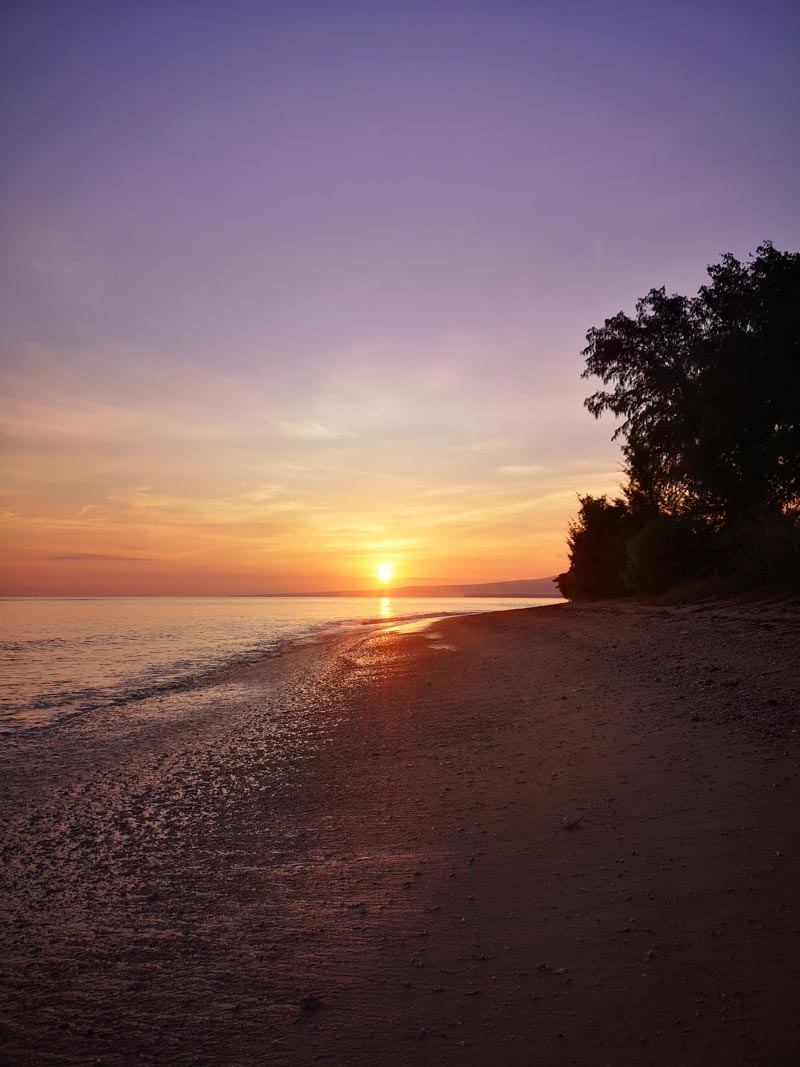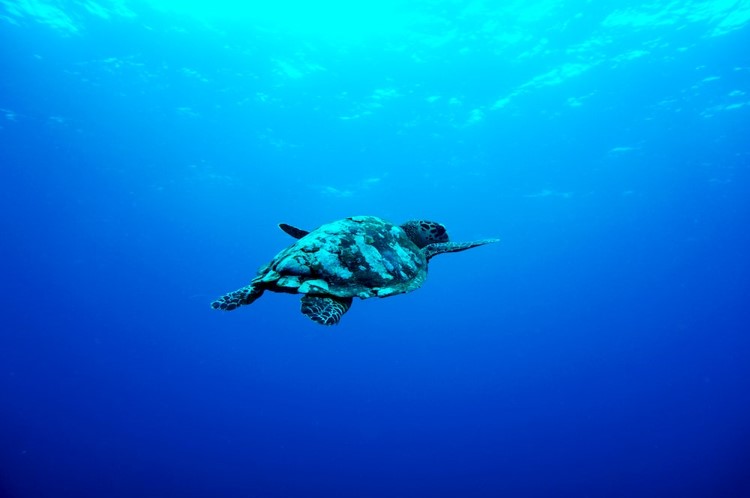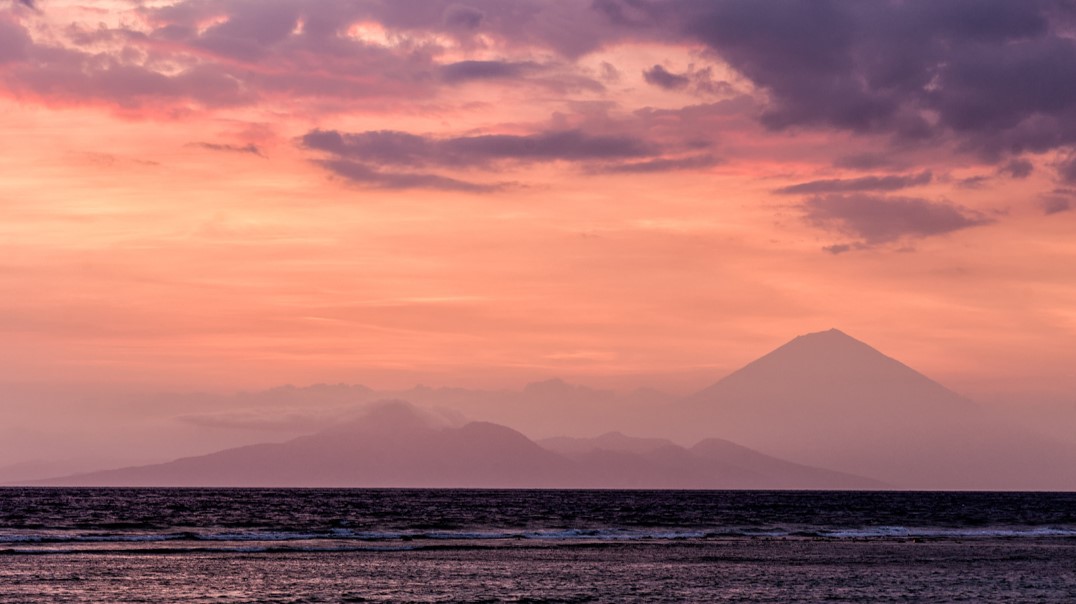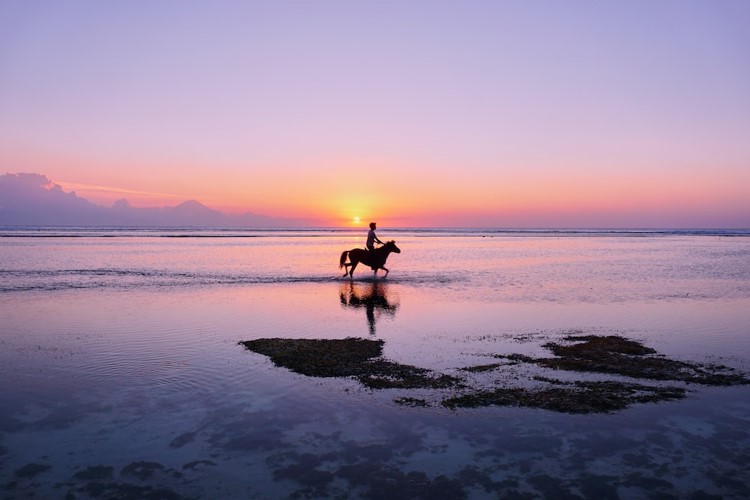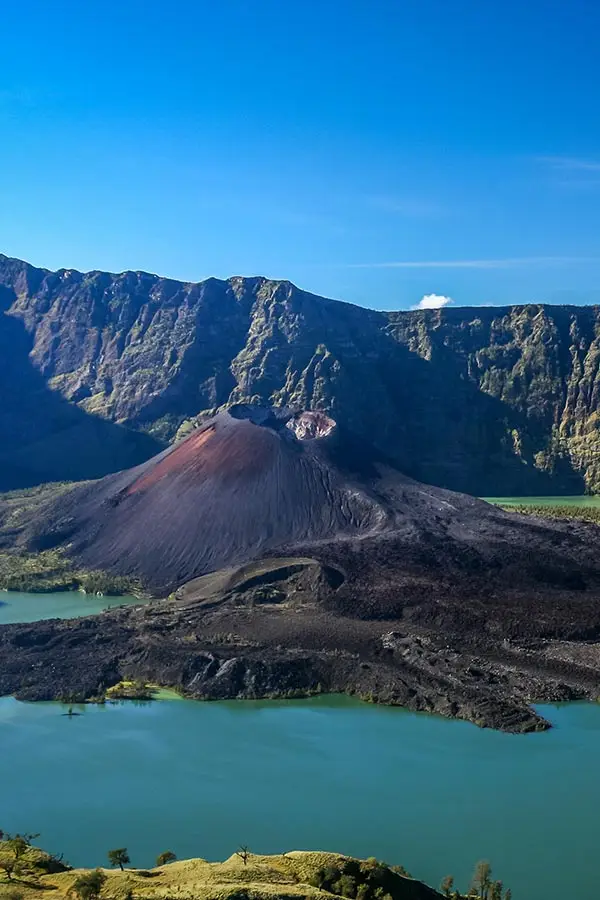Gili Air, a tropical paradise nestled off the coast of Lombok, Indonesia, is one of the three enchanting Gili Islands that are known for their pristine sun-kissed beaches, azure sea, and sparkling sand. But this island offers so much more than just stunning visuals.
Before you lock in your trip dates and start packing your suitcase, it’s important to have a comprehensive understanding of the island’s weather patterns. Knowing what to expect from Gili Air’s climate can help you better plan your activities and make the most of your visit.
In this comprehensive guide, we’ll delve into the specifics of Gili Air weather, offering you invaluable insights into when to visit, what to expect during the wet season, and why this less popular period might just surprise you with its unique charm.

When to Visit Gili Air
When planning your dream getaway to Gili Air, one of the first things to consider is the timing of your visit. The island, much like the rest of Indonesia, experiences two distinctive seasons: the wet season and the dry season.
The wet season typically runs from November through March, while the dry season extends from April until October.
Although the dry season is traditionally more popular with tourists, owing to its clear skies and predictable weather, the wet season presents an equally appealing, albeit different, charm. Contrary to what one might think, the wet season is far from being a constant downpour, and it certainly shouldn’t deter you from considering a visit during these months.
Weather During the Wet Season
As its name suggests, the wet season in Gili Air does indeed come with rainfall. However, the rain here is typically much less intense compared to other parts of Indonesia, such as Bali. Instead of prolonged periods of rain, Gili Air usually experiences short, intense bursts of showers, followed by intervals of bright sunshine. It’s not uncommon to experience rain for just a few hours in a day, leaving the majority of the daylight hours dry and suitable for outdoor activities.
The rain often serves as a refreshing relief from the tropical heat, leaving the air cooler and the sky clearer. As an added bonus, the island’s already lush vegetation takes on an even more vibrant shade of green, making the landscape even more breathtaking.
Temperature and Humidity
One of the appealing aspects of Gili Air is its tropical climate which results in a fairly consistent average temperature throughout the year.
Daytime highs hover around 31°C (88°F), while at night, it cools down to a comfortable 24°C (75°F). However, do take note that during the wet season, the humidity levels tend to be higher. This may make the ambient temperature feel slightly warmer than it actually is. But don’t let the humidity deter you. The island is blessed with a refreshing sea breeze that often rolls in, helping to maintain a comfortable atmosphere. This breeze, combined with the island’s natural shade, makes even the most humid days pleasant for exploration and relaxation.
Wind and Waves
During the wet season, the wind and waves can be stronger, making it more challenging to travel to and from the island. However, it’s worth noting that the waves rarely get too big for swimming or snorkeling, and some visitors enjoy surfing the waves during this season.
Conclusion
In conclusion, Gili Air’s weather is a tropical delight, offering warmth and beauty all year round.
While the dry season might be the traditional choice for most tourists, the wet season holds its own unique charm and is more than capable of offering an unforgettable experience. Rainfall during this time is typically short-lived, and the after-rain scenery is something to behold, with the island’s vibrant green vegetation taking on a whole new level of beauty. Plus, there’s the added benefit of fewer tourists, which means you can enjoy a more serene, less crowded atmosphere.
So, regardless of whether you’re planning to visit during the wet or dry season, Gili Air stands as a stunning destination, always ready to welcome and surprise you with its natural splendors.
FAQs
Is it worth visiting Gili Air during the wet season?
Absolutely! While the wet season does bring rainfall, it’s typically brief and followed by sunny intervals. The island is less crowded, and the lush greenery is at its peak.
Will the rain ruin my holiday if I visit Gili Air in the wet season?
Not at all. The rain usually comes in short bursts, often lasting only a few hours, leaving the rest of the day for you to explore and enjoy the island.
Is the humidity unbearable during Gili Air’s wet season?
While humidity levels can be higher during the wet season, the sea breeze helps to keep things comfortable.
Is it safe to swim or snorkel during the wet season?
Yes, it’s generally safe. While wind and waves can be stronger, the waves rarely get too big for swimming or snorkeling. In fact, some visitors enjoy surfing the waves during this season.
